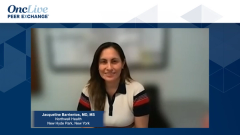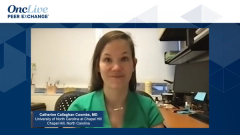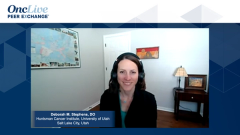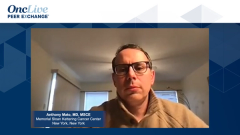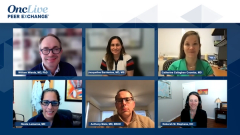
Novel Therapies for CLL in the Context of COVID-19
What to know in terms of COVID-19 vaccine responses in patients with chronic lymphocytic leukemia on novel targeted therapies.
Episodes in this series

William Wierda, MD, PhD: We’re going to turn to new treatments that we’re excited about and some of the updates we saw at ASH [American Society of Hematology] 2021 meeting. Before we do that, Jackie, touch on COVID-19. There were a couple of abstracts presented at ASH on COVID-19. One was an antibody response that was presented by the French group. The other was the Israeli group that reported on cell responses to vaccination against COVID-19. Jackie, could you summarize those abstracts for us? What were the take-home messages?
Jacqueline Barrientos, MD, MS: One abstract shows that in our patients with CLL [chronic lymphocytic leukemia], there’s decreased responses to the vaccination. The NIH [National Institutes of Health] also had a group of patients, I think 57, who were treated. They found that they needed about 45 days after their last vaccine dose to have an antibody response. In treatment-naїve patients, 71% were able to achieve that antibody response. For patients on a BTK inhibitor, it was 57%. For patients on venetoclax-obinutuzumab therapy, it was 0%, but the numbers were very small. It’s hard to know whether it was just the monoclonal antibody. The titers were higher on patients treated with Moderna, as we’re seeing in other patients who are immunocompetent.
The other trial showed patients who had been treated before with anti-CD20 monoclonal antibodies. Even with a third booster shot, they had issues getting the vaccine response. This is the group from France. Unfortunately, we know that because of their immunocompromised state, patients with CLL or lymphoma are at high risk for not developing antibodies despite vaccinations and boosters. Because many haven’t received an anti-CD20 monoclonal antibody, they have issues maintaining any response.
I remind my patients that even with the booster, if they get exposed to COVID-19, they should let us know so we can refer them to infusion of monoclonal antibodies. I don’t know how this will change in the era the omicron variant, which is 3 of 4 cases in the United States. We understand from emerging data that these monoclonal antibodies do not work as well because of the level and degree of mutations to the spike protein. This is an evolving treatment strategy for our patients with CLL. We recently got approval of this. It was shelved by AstraZeneca. We still don’t have access to the drug because it’s being distributed to every state, and every state is determining how they’re going to prioritize our patients. As of right now, we’re still waiting to hear that.
Transcript edited for clarity.


